The Yorkie, officially known as the Yorkshire Terrier, is a cheeky little pup that often ranks among the top 10 most popular dogs in America. Sprightly, tomboyish, and affectionate, we can’t get enough of this tiny terrier. Sadly, its small size makes it more susceptible to injury compared to more sizable dogs. Plus, as a purebred, they are prone to their fair share of health concerns.
These are among the reason that getting pet insurance should be high up there on your list of Yorkie parent responsibilities. We have created a comprehensive guide to help you find the best pet insurance for your little cutie. And because every dog and owner is different, we run you through how to choose the best option for your needs.
So, whether you are about to become a Yorkie parent or you need to upgrade your insurance policy to a better one, we’ve got you covered. Plus, we let you in on the secrets of how some parents save a bit of money. Sure, insurance might not be the most exciting topic, but this is a must-read considering how expensive medical treatment can be. So, let’s get started.
At A Glance
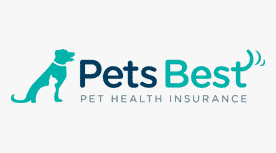
Best
Overall

Best For
Older Dogs
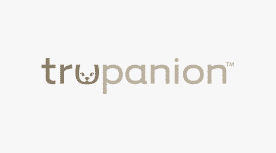
Best For
Bilateral Conditions
Note: Clicking the above links take you to each company’s website to learn more and get a quote. If you make a purchase, we earn a commission at no additional cost to you.
Is Pet Insurance Worth It?

For the majority of pet owners, the quick answer is yes. Liberty Mutual Insurance surveyed pet parents across the country and found that nearly two-thirds of respondents could not afford an unexpected medical bill for their pet.
With this in mind, it’s safe to say that pet insurance is worth it for most owners. Not only does it protect you and your family from finding yourself in financial trouble should the worst happen, but it also provides peace of mind knowing you can make the best medical choices for your precious Yorkie in the face of an emergency.
Common Health Issues In Yorkies

All dogs are different, and this list is by no means exhaustive. But it gives you an idea about what to look for when reviewing insurance policies and who covers these conditions. Plus, it provides an overview of what type of costs are involved. Let’s take a look.
Patella Luxation
Patella luxation is a painful condition when the kneecap does not sit properly, essentially becoming dislocated. In severe cases, surgery is the only option to improve the quality of your dog’s life. The average cost of surgery to fix this issue is between $1,500 and $3,000 per knee. Bear in mind that this does not include the cost of diagnosis, pre-surgery bloodwork, and complications. Some Yorkies get this condition in both knees, making it a bilateral concern.
Eye Conditions
Like many dog breeds, the Yorkie is prone to several eye conditions. The three most common concerns are cataracts, progressive retinal atrophy (PRA), and corneal dystrophy. Although you can treat many other eye concerns early with better hygiene and medication such as eye drops, surgery is often needed for these three conditions.
The average cost of a simple eye exam accompanied by a course of antibiotic drops is approximately $100. Depending on your circumstances, it might not be in your best interest to claim a low cost like this as it is likely to increase your premiums. But if your Yorkie requires surgery, for example, to remove cataracts, the average price falls anywhere between $2,600 and $3,800. So, eye surgery is something most Yorkie parents want to look for in an insurance policy.
Portosystemic Shunt
Portosystemic shunt, sometimes referred to as liver shunt, is a congenital condition that affects the liver. An abnormal blood vessel (known as a shunt) prevents the liver from removing the toxins by completely bypassing it, which can be fatal. In many cases, surgery is required to immediately treat the disease rather than addressing the condition with regular medication.
The cost of surgery to clamp a single and straightforward shunt (there can be multiple and more complicated shunts) can cost between $2,000 and $3,000. Depending on how complex your Yorkie’s condition is, surgery can cost well above $10,000. Diagnosis for portosystemic shunt can happen as early as six months of age. Therefore it’s advised to get your policy in place before your dog shows any symptoms. Once diagnosed, it becomes a pre-existing condition that will not be covered by most companies.
Dental Diseases
Small dogs are more likely to suffer from dental diseases compared to larger dogs. Their teeth are cramped into their small mouths, leading to gum disease and more decay. It would be best if you established a dental cleaning routine to prevent dental diseases. Still, many Yorkies suffer from tooth problems, especially in their later years, leading to tooth loss. Dental cleaning toys may prove helpful as well.
The cost of dental cleaning ranges from $300 to $700, depending on the size and condition of your dog’s teeth. The price for tooth extraction or further treatment, if needed, adds to that bill. Although this might seem like an unnecessary bill, regular cleanings keep dental costs down in the long run (and make breath fresher too!)
Collapsed Trachea
Collapsed trachea is the progressive weakening of the tracheal cartilage, also known as the windpipe. It is more commonly diagnosed in small middle-aged dogs, and the Yorkie is one of the most affected breeds. However, many dogs can improve their condition with medication and fundamental lifestyle changes, such as using a high-quality harness rather than a neck lead.
But in severe cases, more extreme and costly intervention is needed. The cost of diagnostics alone for collapsed trachea can range from $500 to $2,000. Adding the surgery to strengthen the windpipe can add $2,000 to $5,000 to the bill. In some cases, dogs still need medication to manage the issue.
Considerations When Choosing An Insurer

Although the choice is ideal for tailoring your insurance to your needs, it can make your decision much harder. Here we take you through what you need to consider when choosing the best insurance policy for your Yorkie.
Enrollment Rules & Waiting Periods
All pet insurance companies offer lifelong coverage for as long as you carry active coverage (pay your bills) with them. However, some insurers have rules about the age of your dog at enrollment for a new policy. Some companies only insure puppies after 8 weeks of age, whereas some cap the age at 14 for older dogs looking to start a new policy. So be sure to check out the enrollment rules.
Most companies also have a “waiting period.” This protects the company by stopping owners from only taking out insurance when they need it. The waiting period is the minimum amount of time you have to wait before diagnosis and filing a claim. For accidents, coverage usually kicks in within a few days. But the waiting period is often extended for illnesses and can vary depending on the disease. Different companies have different rules, so this is another stipulation to check out.
Types of Coverage & Premiums
The two main types of coverage are:
- Accident-only – This type of coverage only covers accidents, including poisoning, being struck by a vehicle, or ingesting foreign objects, to name a few instances.
- Accident and Illness – Coverage for accidents and most illnesses, except for pre-existing conditions. This is the most popular coverage option as it protects pet owners from the most unexpected medical expenses.
Some companies also offer a wellness plan (aka preventative care plan) during the enrollment process. This commonly covers routine vet expenses (i.e., annual exams, spay/neuter procedures, vaccinations, etc.) but varies by provider. It’s typically available as an add-on to an accident-only or accident and illness policy, but some companies allow you to purchase it without an insurance policy. This add-on coverage isn’t technically an insurance product.
To pick the best level of coverage, you need to think about what you and your Yorkie needs. It’s essential to read the fine print to make sure you understand what you are signing up for in the contract. All companies and policies have different rules, exclusions, waiting periods, and limits.
When insurance companies talk about premiums, this refers to the cost you pay to keep your coverage active. Most companies give you the option of paying monthly or annually. According to NAPHIA (North American Pet Health Insurance Association), the average monthly premium for an accident and illness insurance policy in the U.S. in 2022 was $53.34 for dogs. Of course, this varies for every dog and situation, including yours, so be sure to get multiple quotes from top-rated companies. This expense often works outs to me much more manageable for the average family than being faced with a huge, unexpected bill.
Deductibles & Claim Payouts
The term “deductible” refers to the amount you pay out of pocket before the company starts covering you for reimbursement of claims made. Depending on your policy, the deductible is paid annually or per incident. Generally, the higher your deductible is, the lower your premium. But this is not always the case.
When picking a policy, claim payouts are one of the most important factors to consider. There are various ways that an insurer caps the amount they reimburse you. For example, this could be by incident, by calendar year, or for the lifespan of your pet. If you select a lifespan claim limit, the premium is likely to be higher. But in some cases, it is worth it.
Exclusions
Exclusions are the list of conditions and scenarios which are not included in the coverage. This is another crucial aspect of your insurance policy to check. For example, suppose a policy excludes portosystemic shunt or patella luxation. In those cases, it might not be the best choice for your Yorkie. We are not aware of any insurer not covering the primary conditions affecting a Yorkie, but policies can change over time. So, you should always read the small print to ensure they cover what matters most for you. You can find the exclusions in the policy documents.
Who Offers The Optimal Fit For Your Yorkie?

Here we review some companies that offer the best pet insurance for you and your Yorkie to consider. And, once you are ready, we’ve made a free quote form that provides customized policy quotes from top pet insurance companies when you fill in your pet’s details. By entering your pet’s specific characteristics, you can get a better understanding of the coverage needed.
Best Overall Pet Insurance
Pets Best
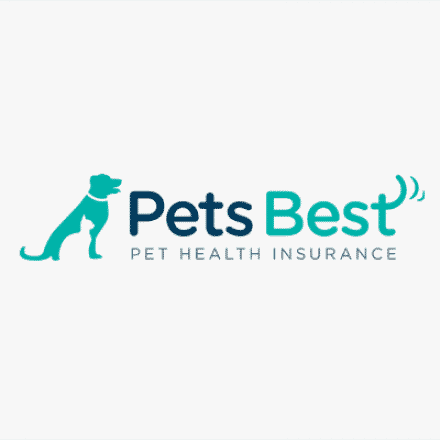
- No age limits or restrictions
- Thorough coverage
- Some of the lowest prices in the industry
- Offers an Accident-only plan
After considering all of the Yorkie’s health concerns and what they are likely to need from their coverage, we have selected Pets Best as the best overall pet insurance for most Yorkies. They cover hereditary conditions that are relatively common issues in the breed, including patella luxation and portosystemic shunt. They may also cover some curable pre-existing conditions.
Best For Older Dogs
Figo
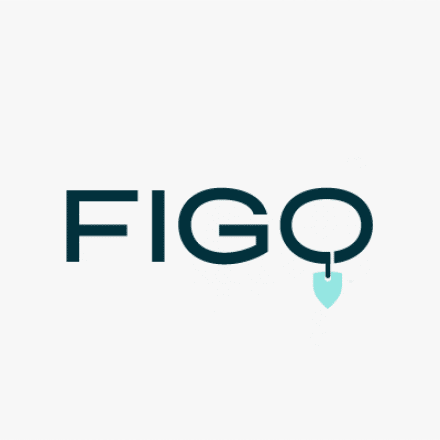
- Excellent value for money
- Offers options for 100% reimbursement and unlimited annual payouts
- Diminishing deductible decreases by $50 each year the policyholder is claim-free until it’s $0
- Coverage includes age and weight-related concerns and hereditary and chronic conditions
Best For Bilateral Conditions (Including Patella Luxation)
Trupanion

- One of the only companies with no bilateral exclusions
- Claims can be paid in less than 5 minutes via Trupanion Express
- 90% reimbursement and unlimited payouts for all plans
- Offers enrollment from birth
Other Options
Embrace
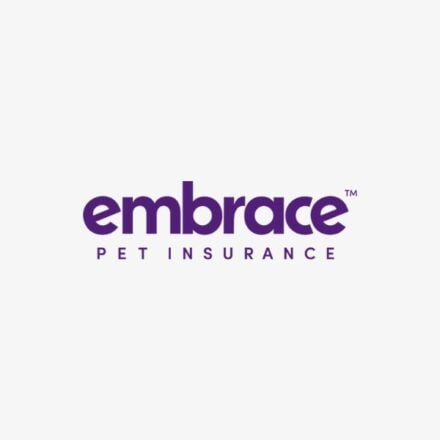
- Premium reduces by $50 per year if no claims are made
- Covers curable pre-existing conditions, dependent on evaluation
- Exam fees included in all policies
- Offers coverage for behavioral therapy and training
- Dental treatment included
Healthy Paws
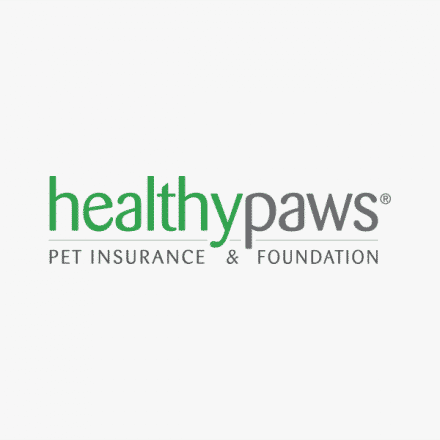
- Unlimited annual and lifetime payouts for all plans
- Fastest claim payout, on average, compared to others
- Excellent value and competitive price
- High customer satisfaction ratings
Lemonade

- AI-driven claims process
- Not available in every U.S. state
- Ability to bundle with homeowners or renters insurance policies
- Optional wellness coverage
How To Save Money
Some Yorkie owners can save money on their insurance policy depending on their circumstances and entitlements. Here are some of the ways:
Increase The Deductible
By increasing the amount of money you are responsible for (aka the deductible), you can often reduce your premium. However, if you do this, you should be prepared to pay the higher deductible if and when you make a claim.
Pay Annually
Insurance companies usually offer two ways of paying your coverage premium: monthly or annually. If you pay monthly, many companies charge a “transaction fee.” So, a good way to save money is to pay the yearly fee upfront if your financial situation allows it.
Multi-Pet Discount
If you own several pets, some insurance companies offer a multi-pet discount when you take out multiple policies with them. It’s essential to make sure that each pet has coverage that suits them as individuals. Depending on the company, you may save up to a 10% discount when you meet their multi-pet criteria. Some companies only offer multi-pet discounts on additional pets (not the first), so be sure to clarify this point before enrolling in a new policy.
Final Thoughts
Investing in an insurance policy for your Yorkie is worth it for most families, especially when you consider the unexpected costs you might face if your pup becomes unwell or injured. As you can see from the high prices of treatments and surgeries, the costs are still huge, even for a tiny pup.
Before you sign on the dotted line for any insurance policy, the most crucial step is to read the whole thing, even the small print. This is where you find limits, exclusions, waiting periods, as well as payment details, and more. Every Yorkie and its parent are different, so be sure to pick the best option for your unique needs. If you are unsure about anything, speak to your vet or call the insurance company, both should be happy to talk through the best options to meet your situation.





